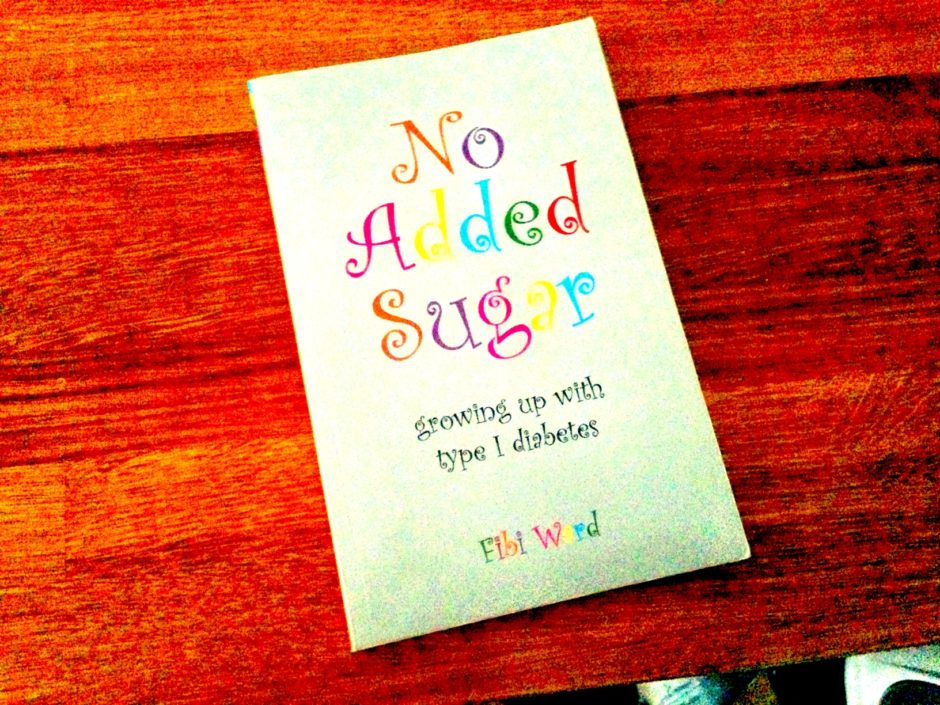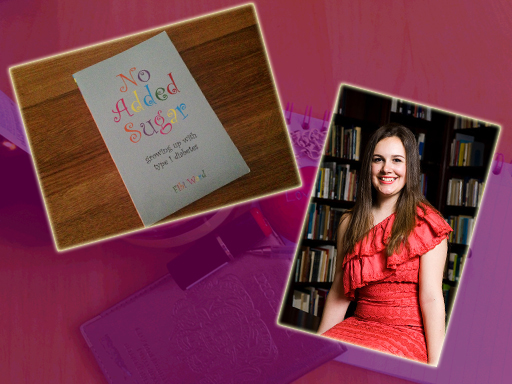I’d hazard a guess that most type 1s remember the day they were diagnosed quite vividly. If not the exact details – the smells, the confusion, the fuss, the overriding sense that something was very much going on that was cataclysmically changing life as you knew it up until that point. I don’t remember being told I was diabetic but do I remember a hellova lot from that very strange period.
But what about the days, weeks, months after? As you frantically and anxiously adjust to a very new, surreal and at times terrifying world of injections, needles, hypos, blood tests, and the all-consuming numbers game?
I don’t remember my first hypo, nor do I remember learning how it felt to have low blood sugars. But I remember sitting in a field not too far from my house about a year after I was diagnosed, not really being able to breathe that well, chomping Dextrose (BLEUGH) faster than I could swallow because I didn’t have the energy to get myself home. I don’t remember learning how and when to adjust my doses, but I remember knowing I needed to add an extra unit one lunchtime as my dear Grandma watched over me, and sneaking the dial up because I couldn’t be bothered to explain to her – looking after me for the first time since my diagnosis – why I needed more than Mum had told her I did.
And school. Oh, you’ve just been landed with a condition that makes you different from every single other child there? Minefield. I know I took days off after I was diagnosed, and I knew when I went back I was allowed to skip the dinner queue. I remember Mum and Dad going in to talk to my teacher after it had all happened, but I don’t remember telling my friends. I remember hiding in the cloakroom eating snacks until one of my classmates caught me and told the teacher, which is when she had to sit down and tell the whole class that I was a little bit different. I remember noticing fat build up in my face and around my middle for the first time thanks to the insulin, and as a sporty, active, run-around kid who liked to climb trees and ride bikes, I knew I didn’t like it.
All these blurry and not-so-blurry memories stand out because I was so young, and it was all so sudden, this alien condition that had come in and interrupted all the bike-riding, eating ridiculous quantities of pick n mix and playing rounders at break time style fun that I was quite content with, thank you very much. I didn’t meet another type 1 for eight years. EIGHT YEARS!!! And I’ve said it so many times – I coped because I was told day in and day out what had to happen and what I had to do; my parents were the ones worrying about everything else. I mostly just got on with it, but the diabetes computer game and the diabetes books I was given to read were not in the least bit helpful. AT ALL. I had parents and diabetes nurses and specialists, but really, I was on my own. I stayed alone in my pancreatically challenged world for a very long time.
So imagine being diagnosed as a kid and having someone a similar age to you on call 24/7 for reference? Thankfully Fibi Ward’s book No Added Sugar fulfils this role wonderfully. Diagnosed at 13, this book recounts her experiences from the early symptoms, through the medical bits like injecting and hypos, the emotional bits like coming to terms with the condition and telling her school friends, through to exercising, eating out, and holidaying with type 1.
Part diary, part resource book, the grasp she has on her diabetes after just a year is astounding enough, but what is most remarkable about Fibi is the way she articulates her experiences. It’s clear, it’s not patronising and ultimately it’s HELPFUL. It’s wholly admirable that she’s decided to get all this down and get it out there to help other young, newly diagnosed type 1s. All I got was a crummy video that I couldn’t understand because it was American, so all the terminology was different. Juvenile Diabetes? What’s that please? High five on those resources, guys.
I got so much wonderful help and guidance from the diabetes specialist team, but there was no one available to me of my age, to tell me things that related to my world of making up dance routines in the playground, having sleepovers and starting to worry about what boys thought of me. All the doctors in the world can give you all the best advice but as a child being plunged into something like type 1 – oh just a little life long condition that’s going to affect you every minute of every day for the rest of your life – having that voice that’s been right there with you, being told the same thing and having your innocent existence a little bit shattered, is quite a comfort.
And beyond helping youngsters, I imagine this book would have been so much use to my parents who had entered a world that was just as foreign to them as it was to me. I imagine they had more sleepless nights in the beginning than I did, worrying if I was going to wake up in the morning or come back on my bike for tea just as merrily as I had left after lunch.
Futher than that, it did my present 26-year-old self a whole load of good to actually go back to basics and read this. Fibi wrote No Added Sugar with the help of her diabetes nurse, and that comes across. The authority is there, but the delivery is refreshingly different from any young person’s resource I’ve previously come across, and it’s completely accessible whether you have type 1 or not. To be honest, the info I gleaned from spending an afternoon reading this book put my grip on my condition to shame. I think in time, being diabetic and doing all the things that go with it become so routine that we forget to take stock of what it is we’re actually doing. I don’t carb count; I carb ‘guess’, which is something I should probably look at. I knew that insulin doesn’t do well in hot temperatures, but I did not know that 30 degrees is where it starts to degrade.
There is so much of a place for this book amongst those dealing with the type 1 life – youngsters, parents, even teachers or friends of people with type 1 – the book just makes sense. It’s not dull, it’s not patronising and it’s for once a piece of material written by someone that has real life experience of going through something that is confusing, worrying, frightening and often isolating. That Fibi has defied all those things and produced such a useful resource is something I cannot imagine being able to do at 26, let alone 13 and newly diagnosed. I just wish I’d had a Fibi on my bookshelf 16 years ago!



No Comments